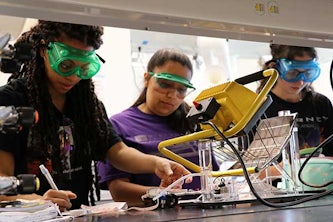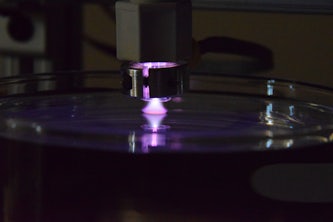
Elijah Thimsen
Energy, Environmental & Chemical Engineering
- Phone
314-935-6103 - Office
Brauer Hall, Room 1005 - Lab location
Brauer 3043
Education
PhD, Washington University in St. Louis, 2009BS, University of Minnesota, 2005
Expertise
Plasma science and technology, aerosol science and technology, high temperature reaction engineering, electrochemistry
Focus
Gas discharge (i.e. plasma) processing for materials synthesis, waste-to-energy, and environmental remediation
Research
Dr. Thimsen's main research topics involve how plasma technology can be integrated with renewable electricity to decarbonize fuels and chemicals; as well as store energy for long periods of time (months or more). Other topics of interest include the development of chemically robust semiconductor nanostructures with tunable electronic structure, and nonlinear irreversible thermodynamics.
Biography
Elijah Thimsen is an associate professor in the Department of Energy, Environmental & Chemical Engineering. He has over 19 years of experience in technical research, primarily focused on chemical and material transformations with an emphasis on aerosol processes, plasma processes, materials science, and energy applications. He received his undergraduate degree in Mechanical Engineering from the University of Minnesota, and his PhD from Washington University in St. Louis in Energy, Environmental & Chemical Engineering. His current research is focused on thermodynamics, including methods to describe end-directed time evolution in nonlinear, nonequilibrium systems. The systems used for these explorations involve nonequilibrium plasma, aerosols, chemical catalysis, electrochemistry, optoelectronic semiconductors, and advanced ceramics. His work has been recognized by a number of organizations, recently by the National Science Foundation and Department of Energy early career awards.
Affiliations



